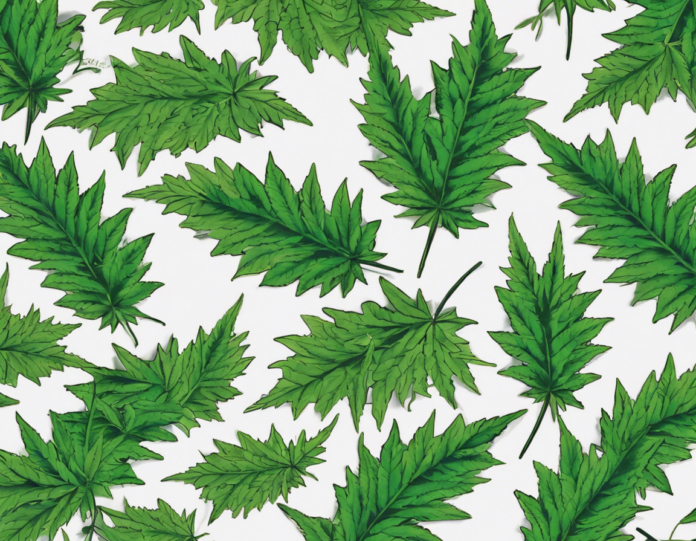Introduction
When the topic of pot leaves comes up, most people would immediately think of marijuana and its psychoactive effects. However, what many don’t realize is that pot leaves, also known as cannabis leaves, carry a plethora of herbal benefits that can be harnessed without any psychoactive effects. In this comprehensive guide, we will delve into the various medicinal and therapeutic properties of pot leaves, exploring their potential as herbal remedies for a wide range of health conditions.
Understanding Pot Leaves
Pot leaves are the iconic five-leafed foliage of the cannabis plant. These leaves contain a high concentration of beneficial compounds such as cannabinoids, terpenes, flavonoids, and essential nutrients. While marijuana is derived from the flowers of the cannabis plant and is known for its psychoactive effects, pot leaves contain minimal amounts of THC (tetrahydrocannabinol), the psychoactive compound in cannabis, and higher levels of CBD (cannabidiol), a non-intoxicating cannabinoid with numerous therapeutic properties.
Benefits of Pot Leaves
-
Anti-Inflammatory Properties: Pot leaves contain cannabinoids like CBD, which have potent anti-inflammatory effects. This makes them useful in managing conditions such as arthritis, inflammatory bowel disease, and chronic pain.
-
Pain Relief: The analgesic properties of pot leaves make them effective in alleviating various types of pain, including neuropathic pain, migraines, and muscle discomfort.
-
Anxiety and Stress Relief: CBD in pot leaves has anxiolytic properties, making them beneficial for reducing anxiety, stress, and promoting a sense of calm and relaxation.
-
Antioxidant Effects: Pot leaves are rich in antioxidants that help protect cells from damage caused by free radicals, thereby reducing the risk of chronic diseases and promoting overall well-being.
-
Neuroprotective Properties: CBD in pot leaves shows promise in protecting the brain and nervous system, making them potentially beneficial in conditions such as epilepsy, Alzheimer’s disease, and multiple sclerosis.
-
Digestive Health: Pot leaves can help improve digestion and alleviate symptoms of gastrointestinal disorders such as irritable bowel syndrome (IBS) and bloating.
-
Skin Health: Topical application of pot leaves or infused oils can help improve skin conditions like acne, eczema, and psoriasis due to their anti-inflammatory and antimicrobial properties.
How to Use Pot Leaves
-
Herbal Tea: Infusing dried pot leaves in hot water to make a soothing and therapeutic tea is a popular way to enjoy their benefits.
-
Topical Creams and Oils: Applying creams or oils made from pot leaves directly to the skin can provide localized relief for pain, inflammation, and skin conditions.
-
Cooking: Incorporating pot leaves into cooking by adding them to salads, smoothies, or soups can be a nutritious way to enjoy their benefits.
-
Capsules and Tinctures: Consuming pot leaves in the form of capsules or tinctures provides a convenient and precise way to experience their therapeutic effects.
Potential Side Effects
While pot leaves are generally well-tolerated, some individuals may experience mild side effects such as dry mouth, dizziness, or drowsiness. It’s essential to start with a low dose and monitor your body’s response when using pot leaves for the first time. Additionally, consulting with a healthcare provider before incorporating pot leaves into your wellness routine is recommended, especially if you are pregnant, nursing, or have any underlying medical conditions.
FAQs
-
Can pot leaves get you high?
No, pot leaves contain minimal amounts of THC, the psychoactive compound in cannabis, and will not induce a high when consumed. -
Are pot leaves legal to use?
The legality of pot leaves varies depending on the country or state. It’s essential to check local laws and regulations regarding the use of cannabis products. -
How do pot leaves differ from marijuana?
Pot leaves are the foliage of the cannabis plant and contain minimal THC, while marijuana is derived from the flowers and buds of the plant, containing higher levels of THC for psychoactive effects. -
Can pot leaves be used for pets?
It’s crucial to consult with a veterinarian before giving pot leaves or any cannabis-derived products to pets, as they may have different sensitivities and reactions compared to humans. -
Are pot leaves addictive?
Pot leaves themselves are not addictive, as they do not contain the addictive compound THC in significant amounts. However, individuals with a history of substance abuse should use them cautiously.
In conclusion, pot leaves offer a natural and holistic approach to health and wellness, providing a range of medicinal benefits without the psychoactive effects commonly associated with marijuana. By understanding the herbal benefits of pot leaves and incorporating them mindfully into your daily routine, you can harness the power of this versatile plant for improved well-being and vitality.






